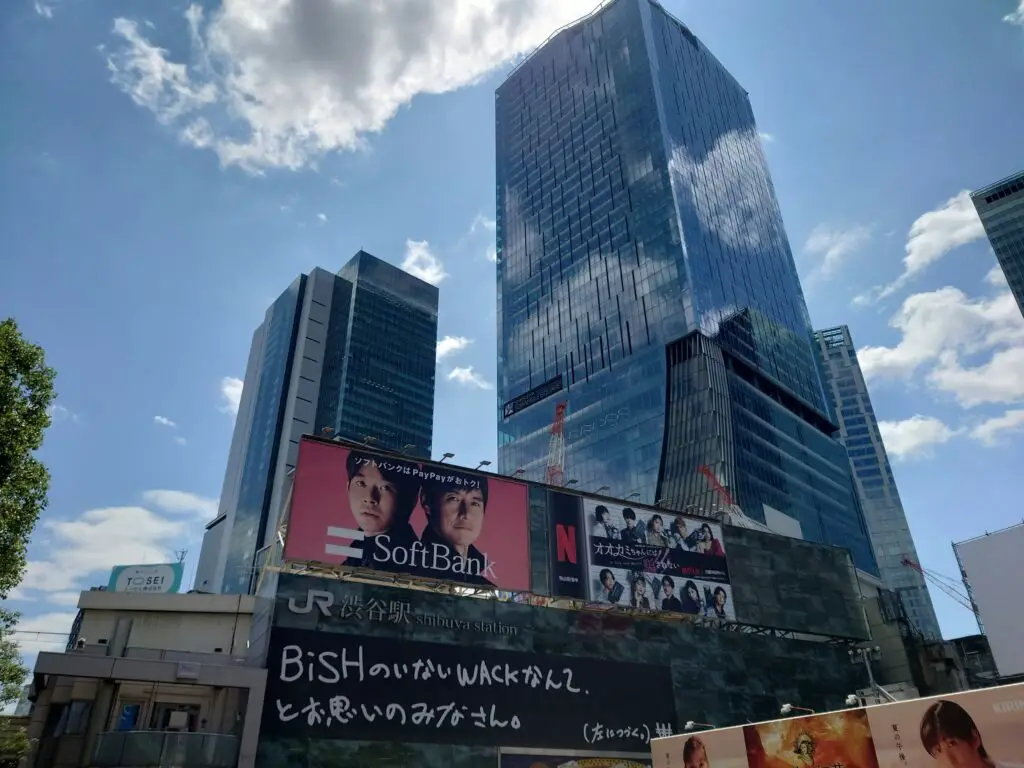The Dream of Private Cities
In recent years, a trend has emerged where tech billionaires are investing in the development of private cities, driven by a vision of building utopian environments that reflect their ideals. The motivations behind these ventures are multifaceted, encompassing economic, social, and environmental aspirations. These influential individuals believe that by creating custom-designed urban spaces, they can circumvent the shortcomings of traditional governance and urban planning.
One primary motivation for these billionaire-led projects is the pursuit of innovation and efficiency in city management. Technology plays a pivotal role in these new urban ecosystems, as founders aim to leverage advancements in data analytics, sustainable energy, and smart infrastructure. For instance, NEOM in Saudi Arabia is envisioned as a high-tech city that will incorporate cutting-edge innovations, paving the way for sustainable living and economic opportunity. Its ambitious design seeks to redefine urban living by integrating artificial intelligence and renewable energy within its infrastructure.
Similarly, Telosa, a project led by billionaire Marc Lore in the United States, promises to create a sustainable city that prioritizes economic prosperity and social equity. This initiative aims to foster community engagement and inclusivity through innovative land ownership models and a focus on various green technologies. By prioritizing such ambitious goals, Telosa aspires to serve as a blueprint for future urban development worldwide.
In Honduras, the Prospera project is taking a different approach, promoting economic freedom through a unique special economic zone model. By attracting businesses and entrepreneurs, this city aims to stimulate economic growth while emphasizing lower taxation and minimal government intervention. Each of these projects encapsulates the tech billionaires’ vision of not only constructing livable spaces but also fostering environments that could revolutionize urban paradigms and create improved societal outcomes.
What It Looks Like Inside
The allure of tech billionaires creating their own cities lies not only in their ambitious vision but also in the meticulously planned designs and functionalities that characterize these private environments. Each private city is conceived as a haven of innovation, melding architectural aesthetics with cutting-edge technology to create spaces that are meant to inspire creativity and productivity. The urban planning strategies employed often emphasize sustainability, featuring green spaces, smart homes, and community-centric layouts that foster social interaction while promoting environmental consciousness.
Architecturally, these cities exhibit a range of styles, from futuristic designs featuring sleek lines and sustainable materials to more organic structures that harmonize with their natural surroundings. The emphasis on aesthetic appeal is balanced with practical considerations, such as energy efficiency and the incorporation of renewable energy sources. The seamless integration of technology into the fabric of these cities is evident in their infrastructure, with smart systems governing everything from energy management to public services. Inhabitants can experience the convenience of automated transportation, real-time data access for city services, and intelligent waste management systems, all contributing to a streamlined urban experience.
However, the implementation of these tech-driven governance models raises concerns regarding personal freedoms and potential dystopian implications. The controlled environments may inadvertently limit social diversity and freedom of choice, as the citizens’ experiences and interactions are often shaped by corporate interests rather than communal values. While innovation is undeniably at the forefront of these developments, it is crucial to remain vigilant about the possible consequences of such isolation. Ultimately, the pursuit of utopia must be balanced against the preservation of fundamental individual rights to ensure these private cities do not veer into the realm of dystopia.
Would You Want to Live There?
The concept of living in a city crafted by tech billionaires presents an intriguing proposition that draws both admiration and skepticism. One of the primary benefits of residing in such exclusive communities is the potential for an enhanced quality of life. These tech-driven environments generally prioritize innovative infrastructure, green spaces, and advanced technology, all of which can contribute to a more enjoyable living experience. High-speed internet, smart city solutions, and sustainable energy systems are often integral to the design, offering residents conveniences and comforts often lacking in conventional urban settings.
However, this idyllic vision is tempered by the reality of stringent regulations that may accompany such living arrangements. Inhabitants might find themselves subject to various community rules intended to maintain an exclusive, unified lifestyle. These regulations could dictate everything from architectural designs to lifestyle choices, raising questions about the trade-off between personal freedom and luxurious living. While some may appreciate the controlled environment, others may view these restrictions as an infringement on their individual autonomy.
Moreover, the costs associated with living in a billionaire-built city can be quite prohibitive. Real estate prices in these locations can soar, making accessibility a significant issue for many prospective residents. Beyond property acquisition, there may also be community fees and income requirements that limit entry to affluent individuals. This exclusivity raises concerns regarding socio-economic diversity within such communities, leading to a homogenous environment that may not reflect the broader societal landscape. Consequently, individuals must weigh the allure of an enhanced living experience against the reality of costs and potential restrictions before deciding if residing in a billionaire’s city aligns with their personal values and lifestyle preferences.
Are These Cities the Future or a Fad?
The emergence of private cities spearheaded by tech billionaires has garnered attention, prompting questions regarding their sustainability and long-term viability. While these ambitious projects aim to create self-sufficient urban environments, the realities of managing a city often present complex challenges that may not be adequately addressed by innovative ideas alone. The potential risks, such as economic downturns and social discontent, loom large over the feasibility of these ventures.
One of the central concerns is the economic landscape within which these cities are founded. Economic fluctuations can significantly impact the success of these ventures, raising the question of whether a tech-driven model can withstand the test of time. Many urban planners emphasize that a successful city requires a diverse economic base, not solely reliant on technology or a select few industries. Reliance on a narrow market could lead to instability, especially in the face of economic downturns that threaten job security and investment.
Additionally, social cohesion often emerges as a critical factor for long-term viability. Billionaire-led communities may attract certain socio-economic demographics while inadvertently alienating others, leading to potential social tensions. Experts warn that for these cities to flourish, they must foster inclusive environments that accommodate diverse populations and provide essential public services. This is increasingly important as social expectations evolve, and residents demand transparency and participation in governance.
Ultimately, the question remains: are these private cities a fleeting trend or an evolution in urban planning? While proponents tout their transformative potential, the realities of construction, governance, and economic viability must be diligently assessed. The future of these cities will depend on a delicate balance of innovative vision and pragmatic urban design that responds to both current and future societal needs.
Global Implications
The phenomenon of tech billionaires building their own cities raises significant global implications that could reshape urban development, economic power dynamics, and the relationship between citizens and governments. These private cities, often referred to as ‘city-states,’ may challenge the traditional role of national governments, leading to a re-evaluation of their authority and influence.
As billionaires establish their own urban environments, where they dictate the rules and regulations, there is potential for a shift in urban development paradigms. This new type of governance could prioritize innovation, sustainability, and technology integration in ways that may not align with existing public policies. The emergence of these private urban centers might foster competition among cities worldwide, pressuring traditional governments to adapt their strategies or risk losing economic and intellectual talent.
Furthermore, the influence of wealthy individuals in creating autonomous cities could disrupt existing economic power dynamics. With significant financial resources, these billionaires can attract skilled labor and major investments, consequently undermining the tax bases of surrounding municipalities. This shift raises questions about the ramifications for local economies and the broader fiscal health of nations, as disparities between public and private sectors could widen.
Additionally, the rise of private cities poses challenges to international relations and regulatory frameworks. Nations may need to navigate the complexities of governance in areas where billions in private capital dictate local law, creating a patchwork of regulations that differ from one locality to another. This could complicate issues such as citizenship, taxation, and the provision of public goods, fundamentally altering the social contract between citizens and their governments. As these developments unfold, it is crucial to consider the broader implications of billionaire-led urban experiments on the global stage.
Innovations in Infrastructure
The emergence of private cities spearheaded by tech billionaires marks a significant shift in urban development, emphasizing cutting-edge infrastructure technologies. These initiatives often integrate sustainable energy solutions that harness renewable resources, setting a new standard for energy consumption and environmental stewardship. For instance, many of these cities utilize solar panels, wind turbines, and geothermal systems to power their operations, significantly reducing their carbon footprint and reliance on fossil fuels. By doing so, they not only contribute to a cleaner environment but also demonstrate that urban areas can function with minimal ecological impact.
In addition to energy innovations, smart transportation systems play a crucial role in these private cities. The concept of transportation evolves beyond mere public transit to a seamlessly connected network of vehicles. This includes autonomous vehicle integration, electric bike-sharing programs, and designated paths for pedestrians that collectively promote a more accessible, efficient, and environmentally-friendly mode of transportation. The advanced infrastructure is designed to alleviate congestion and enhance accessibility, ensuring that residents can navigate the city effortlessly.
Moreover, advanced data management platforms significantly contribute to the operational efficacy of these urban environments. These platforms collect and analyze real-time data from various sources, such as traffic flows, public resource usage, and environmental conditions. This constant monitoring allows city officials to make informed decisions, improving service delivery and fostering a better quality of life for residents. The effective use of big data mitigates the latency often associated with traditional urban management, paving the way for responsive governance that can adapt to the needs of the population.
Ultimately, the convergence of sustainable energy, smart transportation, and data-driven governance heralds a new era in urban planning. These innovations not only differentiate private cities from their counterparts but may also redefine what urban living can entail in the foreseeable future.
Cultural Ramifications
The emergence of private cities, predominantly being developed by tech billionaires, raises profound questions regarding their cultural ramifications. As these influential individuals create selective communities, the potential for cultural homogenization emerges. In adhering to specific ideological frameworks, these cities may inadvertently stifle diversity, leading to enclaves where unique cultural expressions are underrepresented. This environment can significantly alter the social dynamics within and outside these communities.
The technocratic governance model prevalent in these private cities can have implications on cultural activities, artistic innovation, and educational paradigms. When decision-making is concentrated in the hands of a few tech elites, the resulting policies may reflect their values and aspirations, often at the expense of broader cultural understanding. This scenario might lead to a lack of appreciation for diverse perspectives, ultimately shaping a culture that favors technological advancement over humanistic values.
Moreover, the impact on communal spaces must be examined. These urban areas are often designed with specific purposes in mind, such as promoting innovation or enhancing efficiency. While these objectives can lead to the creation of impressive public amenities, they might also prioritize function over a rich cultural experience. Art and education, essential elements for fostering community cohesion and cultural richness, could be sidelined in favor of projects that resonate more with the technological ethos.
The potential for societal isolation is another pertinent concern. As residents of these cities may contribute to a shared narrative heavily influenced by technology and wealth, the resulting social interactions could reinforce existing inequalities. This environment may lead to an echo chamber effect, where diverse voices are not heard, further magnifying cultural divides. Ultimately, the cultural ramifications of these private cities warrant close examination, as they hold the power to redefine social dynamics and influence the arts and education within society.
Environmental Considerations
The endeavor of tech billionaires to construct their own cities raises significant environmental considerations that warrant careful examination. Central to these projects is the adoption of sustainable building practices aimed at minimizing the ecological footprint of urban development. Through innovative architectural designs and the use of renewable materials, these private cities can potentially set precedents for environmental stewardship in urban planning. For instance, integrating solar panels, rainwater harvesting systems, and energy-efficient structures can substantially mitigate the energy consumption typically associated with modern city living.
Moreover, the incorporation of green spaces within these urban environments is crucial for enhancing biodiversity, improving air quality, and providing recreational areas for residents. By prioritizing parks, community gardens, and natural habitats, tech billionaire-led cities have the opportunity to create environments that harmonize with nearby ecosystems. Such integration not only benefits urban dwellers but also serves as a critical component in addressing global climate change challenges. The relevance of urban green spaces is further supported by studies indicating that they contribute to mental well-being and community resilience.
<phowever, a="" ability="" adopt="" advancing="" against="" ambitious="" an="" and="" approach="" are="" areas="" as="" balanced="" be="" billionaires="" carbon="" challenges,="" challenges.="" cities="" city-building="" comfort="" compromise="" construction,="" could="" cutting-edge="" degradation.="" destruction,="" development="" dilemma="" drive="" during="" ecological="" ecosystems.="" emissions="" environment.
Public Response and Criticism
The concept of tech billionaires constructing their own cities has elicited a wide range of public responses and significant criticism. On one hand, there is enthusiasm among some segments of society for innovative urban solutions purportedly offered by these private enclaves. Proponents argue that billionaires possess the resources, vision, and freedom to experiment with new models of living that address pressing issues such as sustainability, housing shortages, and advancing technology integration within urban environments. They point to the potential for modern amenities and eco-friendly infrastructures, suggesting that these developments could serve as laboratories for urban innovation, producing scalable solutions to the challenges faced by contemporary cities.
Conversely, the idea of creating exclusive cities raises critical concerns regarding accessibility and equality. Critics argue that when billionaires build their own cities, it challenges the very foundations of democracy and equitable urban development. By prioritizing private interests over public good, these initiatives could deepen social divides and alienate lower-income residents who are excluded from these exclusive spaces. Urban planners and social activists emphasize the need for inclusive development, advocating for approaches that prioritize community engagement and diverse stakeholder input rather than centering on individual wealth. They highlight that urban spaces should reflect the needs of all residents, not just those with financial means to shape their environments.
This tension between innovation and exclusivity has sparked debates within communities, prompting many to question whether billionaire-led projects truly serve the broader public interest. As voices from various sectors, including activists, urban planners, and city residents, rise to critique these initiatives, the discourse around billionaire-built cities is likely to evolve, reflecting deeper societal values about ownership, community, and the future of urban living.

It could cover a range of topics related to health, wellness, beauty, personal growth, and social issues, all from the perspective of striving for beauty, intelligence, youthfulness, and impartiality





